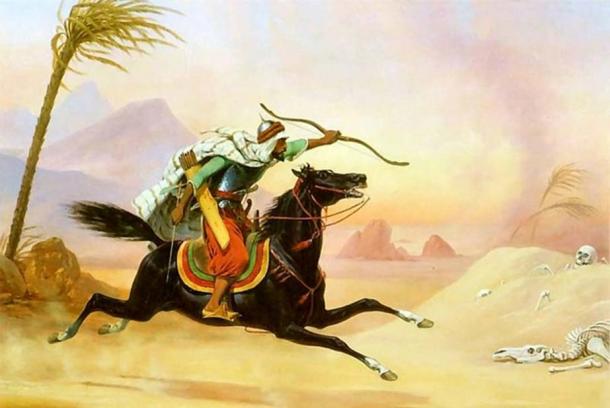Rukun-ud-Din Baibars by Aslam Rahi

Al-Malik Al-Zahir Rukn al-Din Baibars was the Mamluk Sultan of Egypt & Syria.He was the sole wall against the Mongol onslaught in the Islamic World. These were extremely critical times when Sultan Baibars came up as a saviour & later a reformer. He is renowned for his military campaigns against Mongols and crusaders and for his internal administrative reforms . He has become a part of the Egyptian folklore.Sultan Baibars gained his first major military victory as commander of the Ayyūbid army at the city of Al-Manṣūrah in February 1250 against the crusaders army led by Louis IX of France, who was captured and later released for a large ransom. In September 1260, the Mamlūk troops defeated a Mongol army near Nāblus in Palestine. Baybars distinguished himself as the leader of the vanguard, and many Mongol leaders were slain on the field. Baibars followed the footsteps of his ideal Sultan Salahuddin Ayubi.He started by consolidating and strengthening his military position. He rebuilt all the Syrian citadels and fortresses that had been destroyed by the Mongols and built new arsenals, warships, and cargo vessels. To achieve unity of command against the crusaders, Baybars united Muslim Syria and Egypt into a single state. Baibars was a commander of the Mamluks in around 1250, when he defeated the Seventh Crusade of Louis IX of France. In 1260 he led Mamluk troops to decisive victory against the Mongols at the Battle of Ain Jalut.In 1265 he received the surrender of Arsūf from the Knights Hospitalers. He occupied ʿAtlit and Haifa, and in July 1266 he received the town of Safed from the Knights Templar garrison after a heavy siege. Two years later, Sultan Baibars turned toward Jaffa, which he captured without resistance. The most important town taken by him was Antioch (May 1268). His seizure of additional strongholds in 1271 sealed the crusaders fate; they were never able to recover from their territorial losses. Baybarss campaigns made possible the final victories won by his successors. Baybarss permanent goal was to contain the continued Mongol attacks on Syria from both north and east that threatened the very heart of the Islamic East. During the 17 years of his reign, he engaged the Mongols of Persia in nine battles. Within Syria, Baybars dealt with the Assassins, a fanatical Islamic sect. After seizing their major strongholds between 1271 and 1273, he wiped out the Syrian members of the group. Baibars was, moreover, more than a military leader or a diplomatic politician. He built canals, improved harbours, and established a regular and fast postal service between Cairo and Damascus, one that required only four days. He built the great mosque and the school bearing his name in Cairo. He was also the first ruler in Egypt to appoint chief justices representing the four main schools of Islamic law




